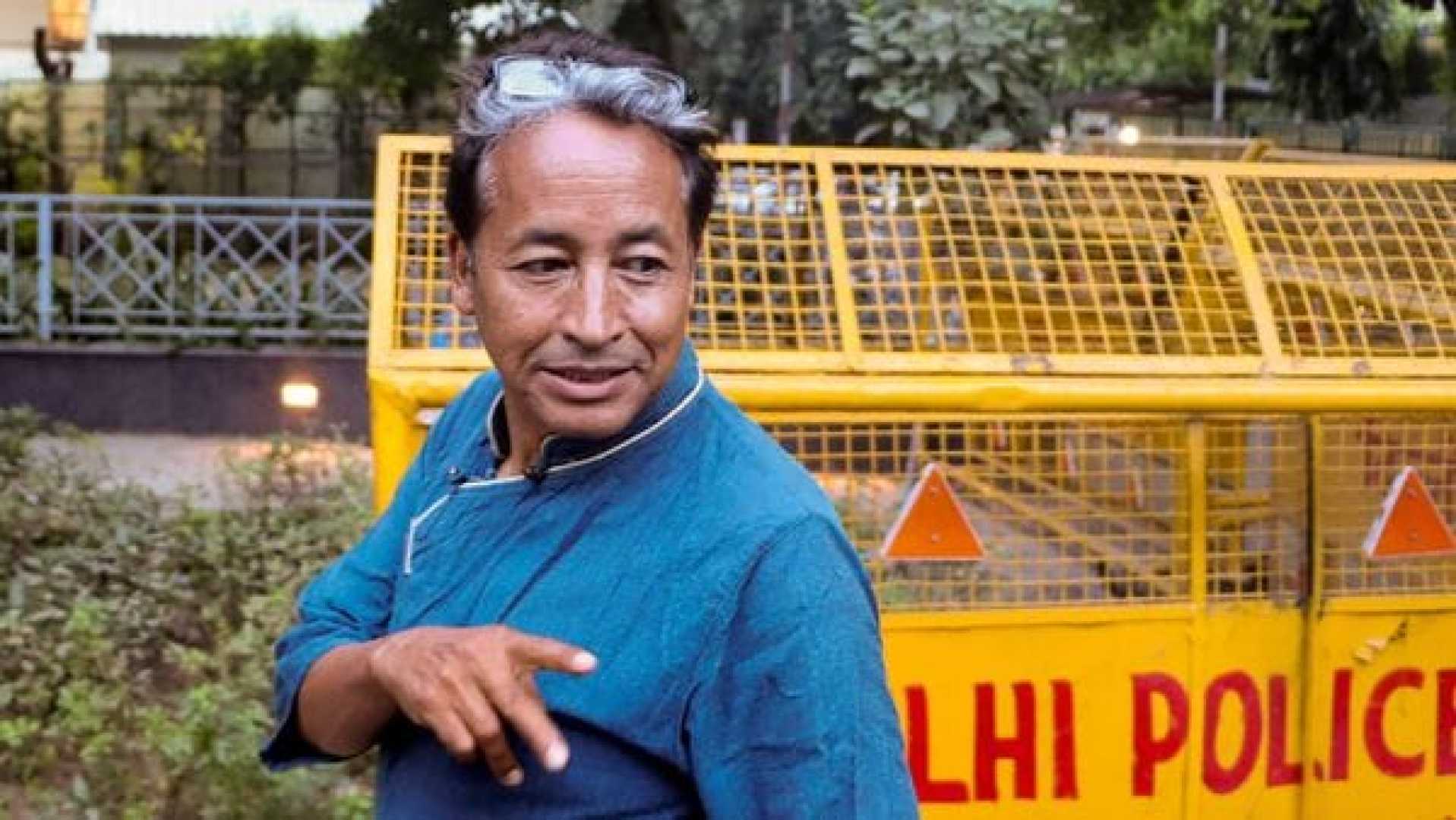News
Sonam Wangchuk Commences Hunger Strike Over Ladakh’s Constitutional Demands

Sonam Wangchuk, a noted climate activist, has commenced an indefinite hunger strike at the Ladakh Bhavan in Delhi. This action follows the Delhi Police‘s decision to deny him and his supporters permission to hold a protest at Jantar Mantar, a designated protest site in the capital.
Mr. Wangchuk, who embarked on a march from Leh on September 1 alongside 150 supporters, faced detention upon reaching Delhi’s border on September 30. He was subsequently released on October 6. His protest aims to draw attention to environmental issues in the Himalayas and advocate for constitutional protections for Ladakh, including statehood and inclusion under the Sixth Schedule, which protects tribal areas.
Additional demands from Mr. Wangchuk include increased employment opportunities for locals and meetings with prominent national leaders such as the Prime Minister, the Home Minister, or the President of India. In a statement, Mr. Wangchuk remarked, “We deferred our congregation last week at Jantar Mantar and ended our fast at Rajghat on October 2, as we were promised an appointment with the top leaders of the country. Since no date has been conveyed to us till now, we have decided to proceed on an indefinite hunger fast.”
Attempts to conduct a peaceful demonstration in New Delhi have faced significant barriers. The organisers, acting under the ‘People’s Movement For Sixth Schedule For Ladakh’, petitioned for permission to march through Delhi and hold a congregation at Jantar Mantar. Despite submitting a request on September 24, the authorisation was neither granted nor denied.
When Delhi Police issued prohibitory orders on September 30, preventing the protesters from entering the city, a confrontation ensued. Mr. Wangchuk, at that time on a hunger strike, was escorted to Raj Ghat where he delivered a memorandum to an official from the Ministry of Home Affairs before briefly halting his fast.
On October 5 and 6, an additional request for a two-day demonstration at Jantar Mantar was denied by the New Delhi district police. The police cited these requests were not in line with Supreme Court guidelines that require applications at least 10 days before the event, with set start and finish times.
Expressing frustration over these developments, Mr. Wangchuk took to the platform X to voice his grievances, stating, “Another rejection, another frustration. If Jantar Mantar is not allowed, then please tell us which place is allowed. We want to abide by all laws and still express our grievance in a peaceful way. Why is it so difficult to follow the path of Gandhi in his own country? There must be a way.”
Ladakh’s status became contentious following the reorganization of August 5, 2019, when the region was designated a Union Territory without a Legislative Assembly post the abrogation of Article 370 by Parliament. Since then, entities like the Leh Apex Body and the Kargil Democratic Alliance have been actively campaigning for statehood, constitutional inclusion, and political representation in India’s parliament.












